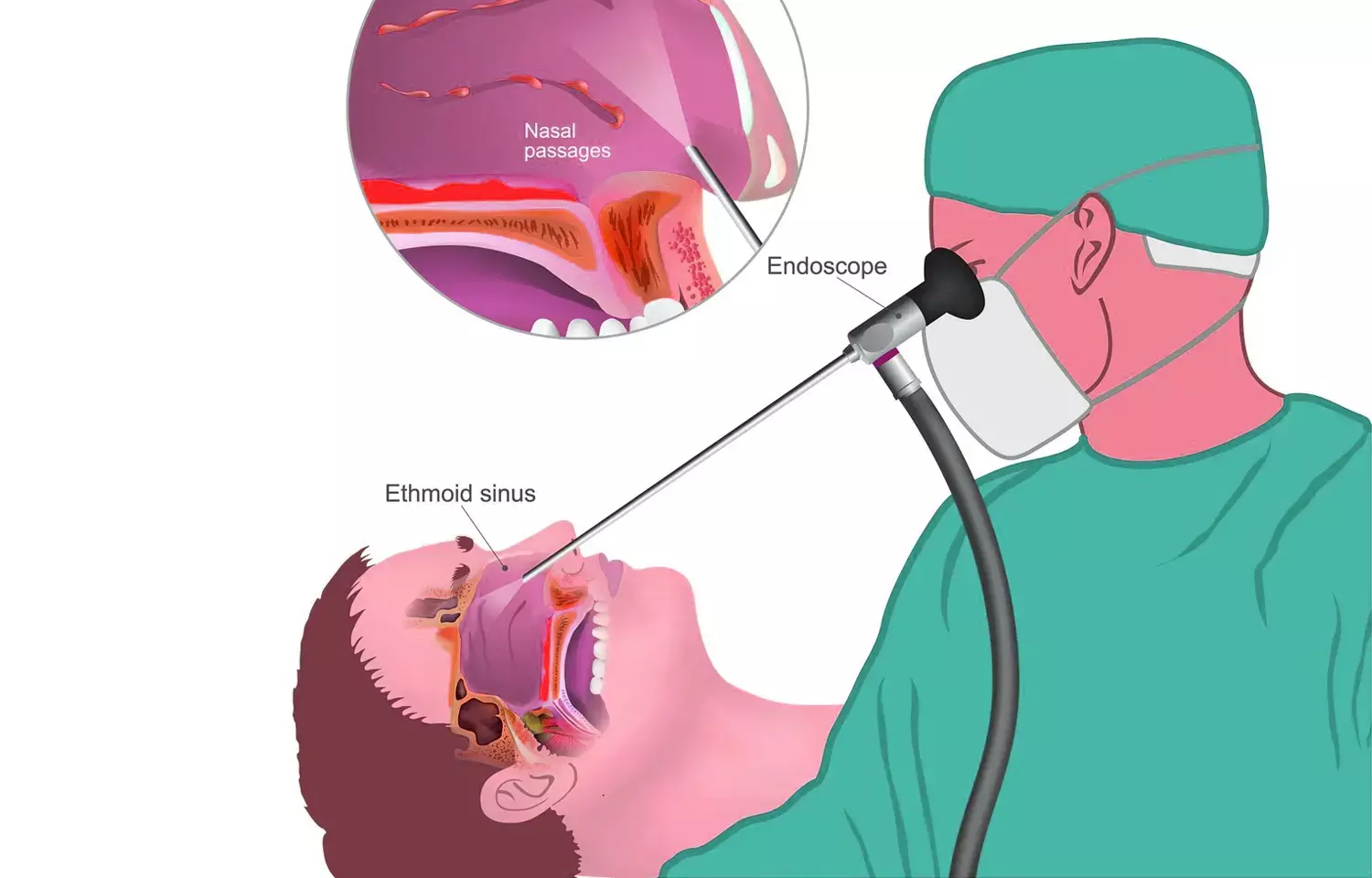- Home
- Medical news & Guidelines
- Anesthesiology
- Cardiology and CTVS
- Critical Care
- Dentistry
- Dermatology
- Diabetes and Endocrinology
- ENT
- Gastroenterology
- Medicine
- Nephrology
- Neurology
- Obstretics-Gynaecology
- Oncology
- Ophthalmology
- Orthopaedics
- Pediatrics-Neonatology
- Psychiatry
- Pulmonology
- Radiology
- Surgery
- Urology
- Laboratory Medicine
- Diet
- Nursing
- Paramedical
- Physiotherapy
- Health news
- Fact Check
- Bone Health Fact Check
- Brain Health Fact Check
- Cancer Related Fact Check
- Child Care Fact Check
- Dental and oral health fact check
- Diabetes and metabolic health fact check
- Diet and Nutrition Fact Check
- Eye and ENT Care Fact Check
- Fitness fact check
- Gut health fact check
- Heart health fact check
- Kidney health fact check
- Medical education fact check
- Men's health fact check
- Respiratory fact check
- Skin and hair care fact check
- Vaccine and Immunization fact check
- Women's health fact check
- AYUSH
- State News
- Andaman and Nicobar Islands
- Andhra Pradesh
- Arunachal Pradesh
- Assam
- Bihar
- Chandigarh
- Chattisgarh
- Dadra and Nagar Haveli
- Daman and Diu
- Delhi
- Goa
- Gujarat
- Haryana
- Himachal Pradesh
- Jammu & Kashmir
- Jharkhand
- Karnataka
- Kerala
- Ladakh
- Lakshadweep
- Madhya Pradesh
- Maharashtra
- Manipur
- Meghalaya
- Mizoram
- Nagaland
- Odisha
- Puducherry
- Punjab
- Rajasthan
- Sikkim
- Tamil Nadu
- Telangana
- Tripura
- Uttar Pradesh
- Uttrakhand
- West Bengal
- Medical Education
- Industry
Magnesium sulfate safe and effective in difficult laryngoscopy cases: Study

Iran: Difficult laryngeal exposure during laser surgery and laryngeal microsurgery is a major concern for otolaryngologists. Now, a recent study has revealed that for better viewing in difficult laryngeal exposure patients, magnesium sulfate (MgSO4) is a safe and effective drug. The study was published in the American Journal of Otolaryngology.
Difficult laryngoscopy (DL) is defined as the inability of a trained anesthesiologist to visualize parts of the vocal cords after several conventional laryngoscopy attempts. Magnesium sulfate (MgSO4) is shown to inhibit the release of catecholamine from adrenal glands and reduces levels of serum epinephrine causing a decrease in the atrial contraction, bradycardia, and vasodilatation. A previous study has shown that the use of MgSO4 in doses less than 50 mg/kg can be effective in reducing cardiovascular instability related to laryngoscopy and tracheal intubation.
Against the above background, Kamyar Iravani, Shiraz University of Medical Sciences, Shiraz, Iran, and colleagues conducted the study with the objective to investigate the efficacy and safety of magnesium sulfate administration in difficult laryngeal exposure patients.
For this quasi-experimental design study, the researchers included forty adult patients scheduled for laryngeal microsurgery with difficult laryngeal exposure according to Cormack-Lehane (CL) classification. The administration of magnesium sulfate 50% (20–30 mg/kg) was done as a bolus injection. Evaluation of laryngeal exposure and hemodynamic stability was done before and after the intervention.
Key findings include:
- CL grading was shown a statistically significant improvement after magnesium sulfate administration.
- There are no clinically significant changes in the mean arterial pressure, heart rate, and oxygen saturation levels in the patients who received magnesium sulfate for better laryngeal exposure.
To conclude, "magnesium sulfate is an effective and safe drug for better viewing in difficult laryngeal exposure patients."
Reference:
The study titled, "Magnesium sulfate administration in difficult laryngoscopy: An effective and safe method," was published in the American Journal of Otolaryngology.
Dr Kamal Kant Kohli-MBBS, DTCD- a chest specialist with more than 30 years of practice and a flair for writing clinical articles, Dr Kamal Kant Kohli joined Medical Dialogues as a Chief Editor of Medical News. Besides writing articles, as an editor, he proofreads and verifies all the medical content published on Medical Dialogues including those coming from journals, studies,medical conferences,guidelines etc. Email: drkohli@medicaldialogues.in. Contact no. 011-43720751


